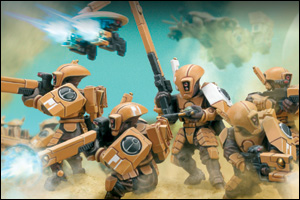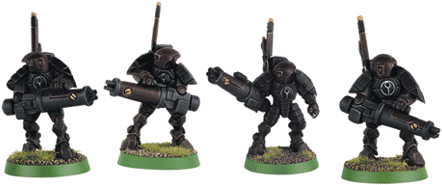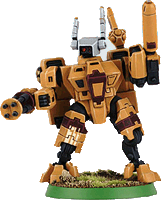CGTL Series 1 Armour
From Xinda
Contents |
CGTL Armour 3.3
| CGA-12 | ||||||||||
|---|---|---|---|---|---|---|---|---|---|---|
| ||||||||||
|
| ||||||||||
| CGA-15 | ||||||||||
|---|---|---|---|---|---|---|---|---|---|---|
| ||||||||||
|
| ||||||||||
| CGA-22 | ||||||||||
|---|---|---|---|---|---|---|---|---|---|---|
| ||||||||||
|
| ||||||||||
Technology]Military Technology] This is the brainchild of years of long research and experimentation with various materials by Guerro], and the product is stunning, affordable and ingenius, with a wide variety of applications. Indeed these armour plates can be used on both infantry armour and tanks, it can be varied and altered according to the requirements of the armour.
3.3 armour is produced by taking strands of Iron, Titanium and Aluminium alloys (occasionally mixed with Tungsten and/or Carbon depending on the use) and heating them under high pressures. The pressure prevents the metals from melting and thus they are able to be compressed together at extremely high temperatures to form a solid sheet of armour plate that can then easily be moulded. To complete this stage of the process the pressure is lowered as is the heat it can then if require be tempered.
Following the cooling process the plate is cleaned off and coated in a layer of carbon fibre that may then be painted a variety of colours and designs.
The process allows the armour to withstand hits from fullpoint (what you might call armour piercing) and hollowpoint bullets, as well as explosions. The armour is far tougher than any comparable model. It is formed into infantry armour by attaching the plates to a leather of cotton fabric suit, the plates placed so they lock and slide enabling full movement without pain or injury to the wearer. Scaled up it can be used on tanks in a modified form allowing it to withstand great temperatures and pressure.
KoResh and JiResh series tanks are commonly contstructed using the CGTL Hyperfibre Material instead of contemporary plate, and often the design was made with the properties of the CGTL armour in mind.
CGA-12
This full body plate armour uses the same armour production technology as the old Aarhaus armour, however this is far more advanced and allows far greater mobility. It is lighter and is made up of several plates the interconnect and slide over one another. The helmet has an advanced H.U.D. that tells the user how much ammunition is left in their weapon (provided the weapon is compatable) it also features night vision, infra red and thermal imaging vision, however automatically reverts to normal if the power is lost.
The helmet has a small yet advanced computer in the back (hence the fluid extension out the back of the helmet and the extension on the front) and power is provided by a small powerpack that can last on full capacity for a space of 72 hours, this is attached to the back of the armour, and is not a generator, however it can be charged via a plug in or solar power (it has small solar cells attached) to increase the longevity of its operational time.
The H.U.D. has as stated infrared, termal and night vision, night vision does not require any power, however the other two do. A high powered torch is also included as well as motion and heat trackers that can identify possible targets and hostiles. The gun (if compatable) will have a slot in it, where a small device can be fitted that records the number of shots fired, and relays information to the helmet for display on the H.U.D. so the P-12 and other CG developed weapons are compatable as standard.
CGA-15
This armour uses the same systems and basic design as the CGA-12, however it is designed for heavy weapons and tactical use. Thus it is tougher and slightly heavier, but is capable of mounting a CGW-18 Gatter.
The CGW-18 Gatter is a gas operated gattling gun, with a recoil inhibiting device (slightly more advanced than those seen on modern recoilless rifles), it has less recoil anyway as, like many CGTL developements it is designed to fire HV rounds, a new developement in ammunition that increases the Velocity and power of the weapon without increasing the recoil. Accuracy is sacrificed obviously, however the Gatter is not designed for accuracy, just a long range and a high level of firepower.
CGA-22
Using 3.3 armour, designed for larger scale use, this battlesuit is controlled from the inside, by a pilet that is strapped in. he machine moves as the pilot moves their body, through as series of straps that when pulled or moved move the suit. The powerpack is on a larger scale than that seen on the CGA-12 however only lasts 48 hours without any charging. If power is lost, the front of the armour opens allowing a quick escape for the pilot. The GCA-22 is armed with a CGW-18 Gatter and a CGW-15 Lancegun.
The CGW-5 lancegun is a high powered railgun, using both conventional and pneumatic as well as air operated it fires a slug at extreme velocity into a target. This slug is deadly against flesh targets and armoured infantry, however its damage is restricted to the hole it creates on impact with the vehicle, as the projectile does not explode, being a solid slug.



